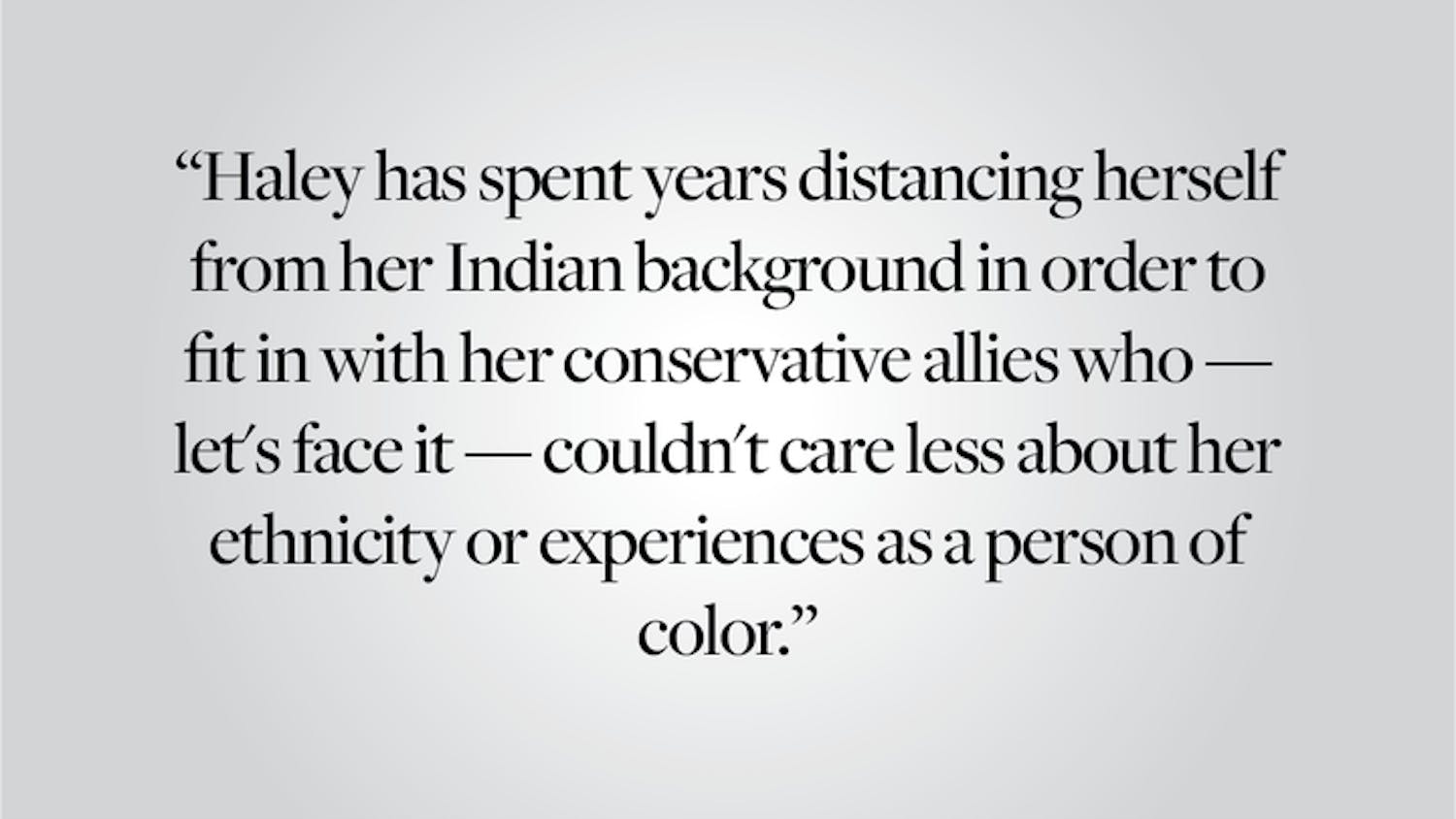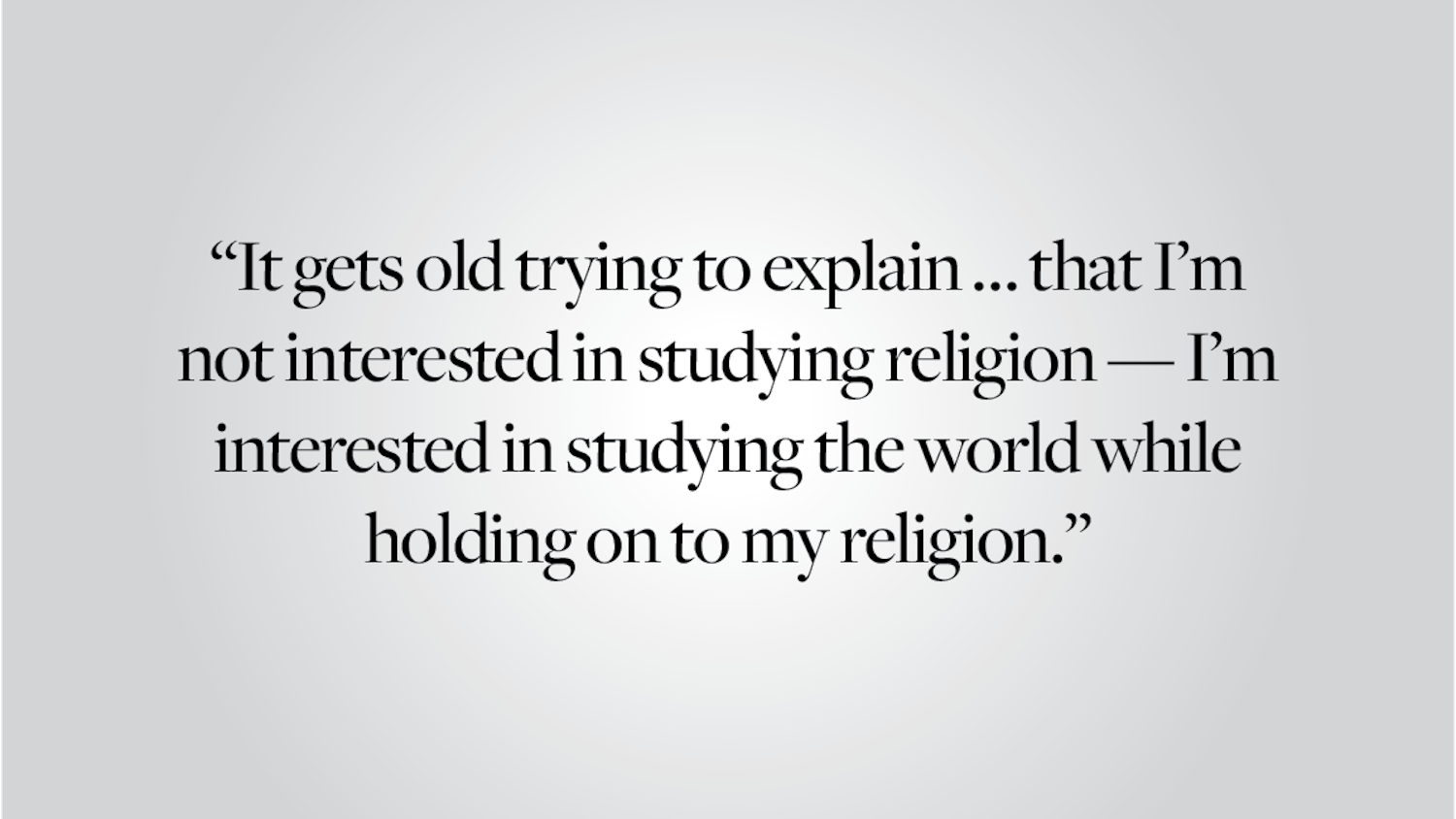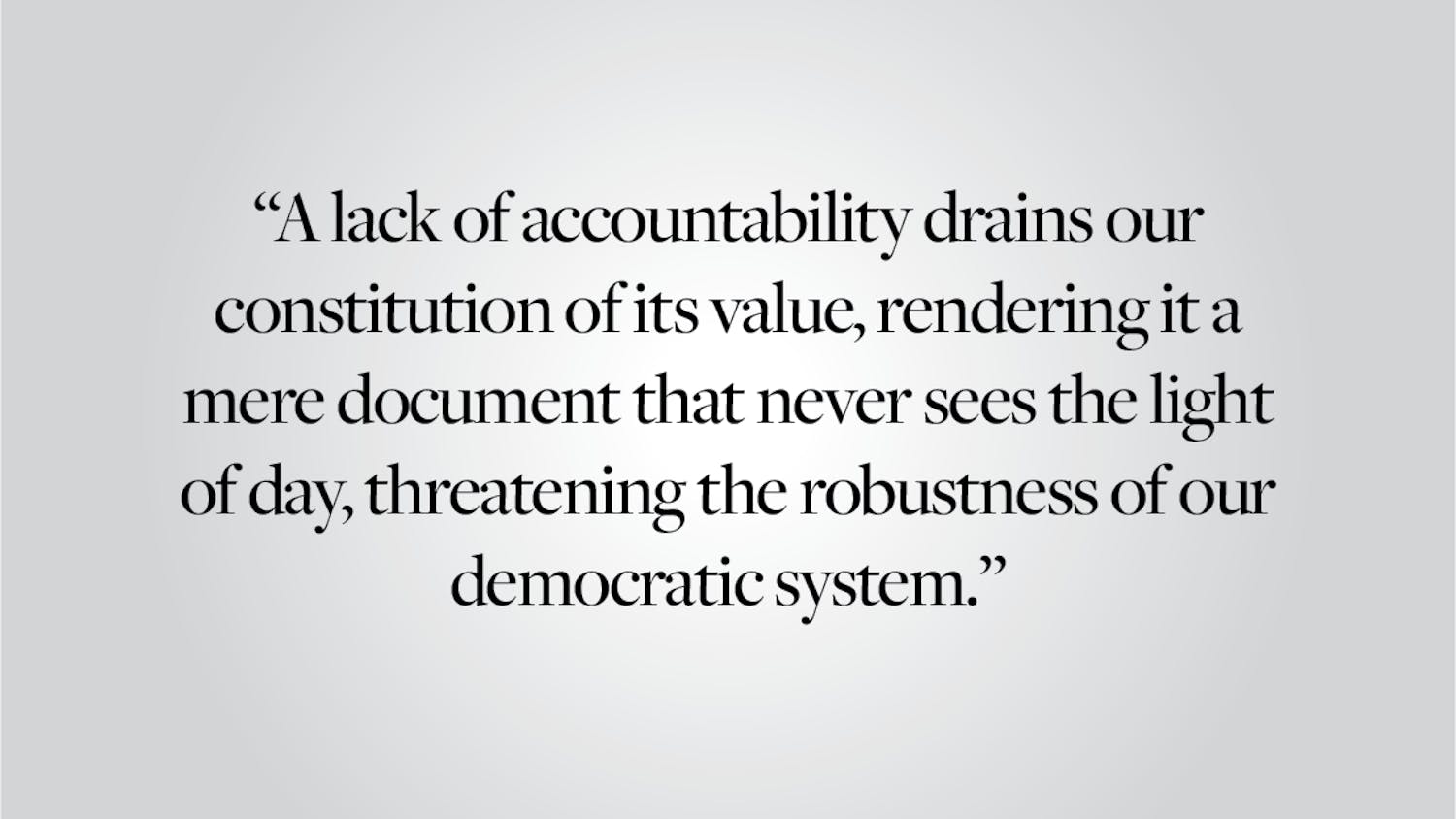Many of us here at Brown have read and admired philosopher Slavoj Žižek’s work through the years. Žižek’s critique of ideology — notably his elucidation of the paradoxes through which ideology may do its work (in “The Sublime Object of Ideology,” “Welcome to the Desert of the Real” and other works) — has a clarity and a much-needed political force. We have learned from it and have introduced our students to it; it is more necessary now than ever. For these reasons, we rejoiced at the opportunity to hear Žižek deliver this year’s Roger Henkle memorial lecture at Brown last Tuesday, Oct. 13.
There were elements that were thought-provoking in Žižek’s lecture. As always he warned against self-congratulatory, bad-faith celebrations of “difference” and the assumption that we know how to tell ideological violence from its subversion. The opening section of his talk offered a usefully counterintuitive theorization of ideological repression as produced precisely through its encouragement of instances of apparent transgression. Far from being a site of “resistance,” the violation of the rules, Žižek cautioned, may be immanent to the operation of repressive authority.
How dismaying, then, to see Žižek illustrate in his talk the very logic he alerted us to. The asides, jokes and illustrations that punctuated his lecture and finally overwhelmed it traded repeatedly in the trivialization of political projects and the objectification of women’s bodies. Has the rollicking archive entirely forgotten the heuristic and critical mission that once underpinned it? Without the careful work of analysis and argumentation, the performance could no longer be distinguished from mere ribaldry and schoolboy violence.
Another interesting stray proposition in Žižek’s lecture was that the real point of psychoanalysis (standing here as an exemplary form of critique of late capitalism) is to teach us that there are things in the world that are more important than our own pleasures and sufferings, than knowing ourselves. How could one not agree with the insight and value of this? But one had reason to wonder what unseemly and asymmetrical liberties this proposition was serving, given that throughout the talk Žižek's own self indulged irrepressibly in its own pleasures — innuendo, intimidation and scabrous hilarity at the expense of positions, identities and persons represented in his audience — yet fled continually from the knowledge of what it was doing. So the archive of lewd humor came to resemble in structure what the speaker said elsewhere about religion and ideology, those powerful systems of myth-making that can “make a good person do bad things” by producing powerfully self-absolving internal representations and blindness to what is actually being enacted “out there” — real words, real insults.
Amongst the supposed corrections to generally held misconceptions that Žižek offered in his talk was the notion that Native Americans killed more buffaloes than the whites who would then settle America — but only after praying to the buffalo spirit. It is ridiculous, he said, to claim that they lived in greater harmony with nature. And Native Americans, he affirmed — basing his claim on what he had heard from some of his “Indian friends” — preferred to be called “Indians.” For the term “Native Americans” could only imply that whites were somehow more “cultural Americans.” At least the term “Indian” had the advantage of continually recalling white stupidity. This was one of the countless instances in the lecture where a historical struggle and a real project of political representation found itself trivialized.
Likewise, we were treated to Žižek’s picture of the ideal multicultural world, where racial and cultural differences would finally coexist peacefully: Arab, Jewish, Balkan and Chinese families would live together in a large building and politely ignore each other. For Žižek, living in harmony does not involve knowing the other better but knowing him less. As for racial stereotypes and jokes, he proposed that we should own them, exaggerate them and generate more of them about ourselves, taking the examples of various Balkan ethnicities who had done this, apparently in great hilarity.
Thus, to every real political struggle of our capitalist, globalized, unequal world, Žižek offered swaggering solution after swaggering solution, drawn from and demonstrated by nothing more than anecdote and free association. Yes, we understand that this project is aimed partly at exposing the dangers of self-indulgent fetishizing of difference by liberal or left-leaning morality. But the logic at play in Žižek’s lecture was one that simply silenced, by charging with stupidity, any thinking or politics that might approach historical predicaments and cultural, ethnic or gendered locations as anything more complex — indeed, more meaningful — than late-night point-scoring and the exchange of jokes.
It was depressing to see a great political thinker and analyst of ideology so disastrously betray his project and so gravely misunderstand his mission as guest of honor at our university.
Timothy Bewes is a professor of English and can be reached at timothy_bewes@brown.edu. Thangam Ravindranathan is an associate professor of French and can be reached at thangam_ravindranathan@brown.edu.




